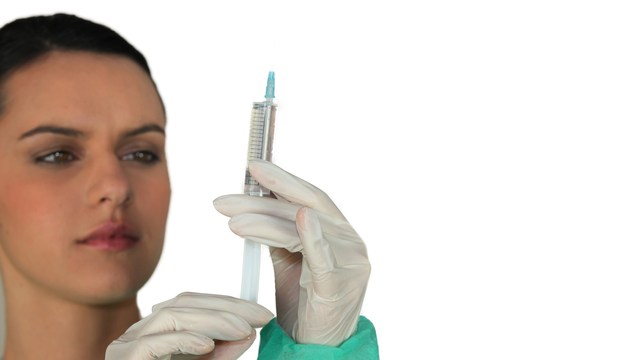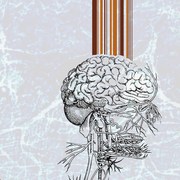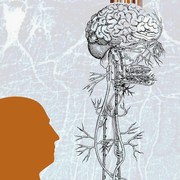The meninges are the membranes which surround your brain and spinal cord. Meningitis is an inflammation of the meninges. Viral infections are the most common cause.
Bacterial meningitis infections are more serious and require immediate medical treatment. Identifying the specific strain of bacteria is crucial for proper treatment.
Causes
Specific bacteria cause specific types of bacterial meningitis.
Streptococcus pneumoniae, which more commonly causes pneumonia or an ear or sinus infection, is the most common cause of bacterial meningitis in the United States.
The bacterium called Neisseria meningitis causes meningococcal meningitis, which commonly occurs when bacteria from an upper respiratory infection spreads to the bloodstream. It is highly contagious and most common among teenagers and young adults. This type of meningitis can cause local epidemics in college dormitories, boarding schools and military bases.
Prior to 1986, Haemophilus influenza type b bacterium was the leading cause of bacterial meningitis in infants and children under the age of six. The introduction of the Hib vaccines, which are part of the routine childhood immunization schedule in the United States, have greatly reduced the incidence of this type of meningitis. Unvaccinated children are at risk, particularly following an upper respiratory infection, ear infection or sinusitis.
Listeria monocytogenes is a type of bacteria found in soil, dust and contaminated foods, like soft cheeses, hot dogs and luncheon meats. This bacterium commonly referred to as listeria, can cause bacterial meningitis among susceptible individuals. Pregnant women, newborns, older adults and individuals with weakened immune systems are most susceptible.
Only 1 to 9 percent of cases of bacterial meningitis are caused by Staphylococcus aureus. It is a complication associated with neurosurgical procedures, brain trauma or medical conditions, like infected intravascular grafts.
Symptoms
The early symptoms of bacterial meningitis can be mistaken for influenza symptoms. The symptoms of meningitis develop over several hours or over one or two days. The hallmark signs, in anyone over the age of two, are high fever, severe headache and stiff neck.
The severe headache leads to nausea and vomiting. Confusion and difficulty concentrating, sleepiness or difficulty waking up, seizures and sensitivity to light are associated with bacterial meningitis. In cases of meningococcal meningitis, a skin rash develops.
Newborns and infants with bacterial meningitis have a high fever, are irritable and cry constantly. They are sluggish and take formula or breastfeed poorly. The fontanelle or soft spot in the skull bulges. They can have seizures. You may notice stiffness in the baby’s body or neck.
Prevention
There are vaccines against Hib, meningococcal and pneumococcal meningitis. The Centers for Disease Control and Prevention recommends the Hib vaccine for all children under the age of five. It is usually given to children starting at two months of age.
There are two available vaccines that protect against meningococcal meningitis. The CDC recommends all 11 to 12 years old be vaccinated with meningococcal conjugate vaccine (MCV4). These children should be given a boost dose at age 16.
For adolescents who received the initial dose at age 13 to 15, a one-time booster dose should be given at age 16 and 18. Adolescents who receive their first dose of MCV4 at or after age 16 do not need a booster dose. Many colleges and universities require incoming student to have record of receiving the meningococcal vaccine.
Currently, there are two types of pneumococcal vaccines. Pneumococcal conjugate vaccine (PCV13) is given to infants as part of the routine childhood immunization schedule. One dose is given at two months, then at four months and again at six months. The last dose is given at 12 to 15 months of age.
The CDC recommends a single PCV13 dose for healthy children ages two to four who are unvaccinated or have not completed the vaccination series. There are specific recommendations for children with chronic medical conditions, such as sickle cell anemia. Parents are advised to consult their child’s pediatrician.
The pneumococcal polysaccharide vaccine (PPSV) is recommended by the CDC for all adults who are 65 years old and older, individuals age two through 64 who have a medical condition which lowers the immune system’s response to infection, smokers or people with asthma, and residents of nursing homes or long-term facilities.
Sources:
University of Maryland Medical Center: Meningitis, Dec. 19, 2011
http://www.umm.edu/altmed/articles/meningitis-000106.htm
Mayo Clinic: Meningitis, Dec. 19, 2011
http://www.mayoclinic.com/health/meningitis/DS00118
Medscape Reference: Staphylococcal Meningitis, Dec. 20, 2011
http://emedicine.medscape.com/article/1165941-overview
Centers for Disease Control and Prevention: Hib Vaccination, Dec. 20. 2011
http://www.cdc.gov/vaccines/vpd-vac/hib/default.htm
Centers for Disease Control and Prevention: Meningococcal: Who Needs to be Vaccinated?
Dec. 20, 2011
http://www.cdc.gov/vaccines/vpd-vac/mening/who-vaccinate.htm
Centers for Disease Control and Prevention: Pneumococcal Disease In-Short, Dec. 21, 2011
http://www.cdc.gov/vaccines/vpd-vac/pneumo/in-short-both.htm
Reviewed December 27, 2011
by Michele Blacksberg RN
Edited by Jody Smith





Add a CommentComments
There are no comments yet. Be the first one and get the conversation started!